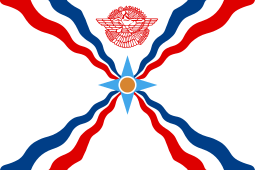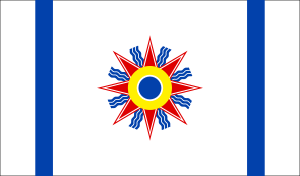Dawronoye
Dawronoye (Syriac: ܕܲܘܪܵܢܵܝܹܐ)[1] is a secular, leftist, nationalist movement among the Assyrian people. Ideologically characterized by progressive ideas and including socialist elements, its founding roots can be traced to the late 1980s in the town of Midyat in Turkey.[2]
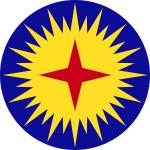
History
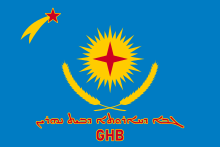
In the late 1980s, a group of Assyrian youth gathered in Midyat to discuss the situation of Assyrians in Turkey after an increase of attacks directed at them. Assyrians were not recognized as a distinct ethnic group with their own language, and suffered from discrimination and oppression. The continued violence had led to a wave of migration of Assyrians towards Europe, leading a group of Assyrians to create an organization that had the main goal of preventing the exodus of Assyrians from the Assyrian homeland. This organization came to be known as "Tukoso Dawronoyo Mothonoyo d’Bethnahrin", translated as the "Patriotic Revolutionary Organization of Bethnahrin". The etymology behind "Dawronoye" shows that the word is understood to mean "revolutionaries" when in fact it turned out to mean "the modern".
The founding members of Dawronoye found a correlation between the struggle of the Assyrians and Kurds in Turkey, prompting members of the movement to join the local support network of the Kurdistan Workers Party (PKK). Eventually, members of Dawronoye were arrested for their involvement with the PKK and later released, leading to the migration of some members of the movement to Europe where a diaspora network was eventually founded in European nations such as Sweden, Netherlands, Belgium, Austria and Germany.
In 2000, Dawronoye held their first congress, and members reorganized as the Bethnahrin Freedom Party (Gabo d’Hirutho d’Bethnahrin, or GHB).
Ideology
The organization originated in the late 1980s from the radical left and describes itself as being "revolutionary socialist". Its initial purpose was to attain national rights of Assyrians in Turkey and prevent the exodus of Assyrians from their native homeland. However, the organization's goals were not confined to national rights, but extended to bringing out wider social, political, and cultural change.
Dawronoye avoided involvement with the Assyrian/Syriac name dispute, holding both the Assyrian and Syriac flags at events and would circumvent the name dispute by rallying around the less controversial name of their homeland - Bethnahrain. Dawronoye pushed the idea that Assyrians/Syriacs are the same people, with the same homeland.
Iraq
There is a network of Dawronoye created civil society organizations and parties across modern state boundaries in the Assyrian homeland region.[2] Among the Dawronoye affiliated organizations in Iraq are the Beth Nahrin Patriotic Union (Huyodo Bethnahrin Athronoyo, HBA) and the Nineveh Plain Forces (NPF) militia.
On 17 July 1999, the Dawronoye-affiliated Patriotic Revolutionary Organization of Bet Nahrain (PROB) carried out its first attack alongside with the Kurdistan Workers' Party (PKK) [2] against a KDP military compound in the town of Kasre, where 39 Peshmerga fighters were killed and 20 injured. Three days later a second attack was carried out by the group in which several of Masoud Barzani's fighters were killed when an army truck driving on a bridge between Kasre and Hajji Umran was blown up. Both attacks were claimed to be in retaliation to the death of an Assyrian woman, Helen A. Sawa, who was allegedly raped and murdered by a senior KDP official.[3]
The political wing of the Dawronoye movement in Iraq is the Patriotic Union of Beth Nahrian (PUBN) which was previously on the Ishtar Patriotic List and runs for seats in the Council of Representatives of Iraq and the Iraqi Kurdistan Parliament. Another Dawronoye affiliated political party in Iraq includes the Syriac Assembly Movement which is based in the Assyrian town of Bakhdida. Both the PUBN and Syriac Assembly Movement have been in favour of the creation of an autonomous region in the Assyrian-dominated Nineveh plain.[4][5]
The Nineveh Plain Forces (NPF) was formed on 6 January 2015 in cooperation with the Bet-Nahrain Democratic Party to defend the Nineveh Plain against the Islamic State of Iraq and the Levant. The armed force later participated in the Battle of Mosul (2016–2017) to liberate the Assyrian towns/villages from jihadists.
Syria
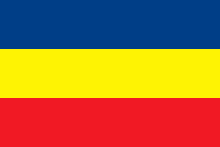
The movement is currently most prominent in Syria, with the Dawronoye affiliated Syriac Union Party (SUP), which is a major partner in the governing Movement for a Democratic Society (TEV-DEM) coalition of the Federation of Northern Syria - Rojava, led by the Kurdish Democratic Union Party (PYD). The SUP operates the Syriac Military Council (MFS) and Bethnahrain Women's Protection Forces (HSNB) militia which are a part of the Syrian Democratic Forces, as well as the Sutoro police force to protect Assyrian communities in their settlement areas in northeast Syria (Gozarto).[7]
Europe
Most of Dawronoye's activities in Europe centred around the Assyrian genocide, commonly known between Assyrians as "Seyfo", which Turkey refuses to recognize to this present day. Activism for genocide recognition would include street protests, hunger strikes, and building occupations. A notable event included the day 100 members of Dawronoye forced entry and occupied a government building in Lausanne, Switzerland where the Treaty of Lausanne was signed. The purpose of the occupation was to attract the attention of the media and Swiss government on the denial of Assyrian rights in Turkey due to the Treaty of Lausanne, the continued oppression on the Assyrian people in Turkey, and to call for international recognition of the Assyrian genocide.[8]
On 15 August 2012, members of the Dawronoye-affiliated Syriac Union Party stormed the Syrian embassy in Stockholm in protest of the Syrian government. A dozen of its members were later detained by Swedish police.[9]
A number of delegates representing several Assyrian cultural-political organizations in Europe attended a congress held in Brussels between the 14th and 15 May 2004, to form an alliance that could represent Assyrians in Europe with governmental bodies such as the European Union and European Council. This alliance came to be known as the European Syriac Union with an associated youth group called the ESU Youth.[10]
In 2004, a satellite television channel, Suroyo TV, was formed by Dawronoye-affiliated members and broadcast from Södertälje in the Western Syriac and Eastern Syriac dialects.
Criticism
Other Assyrian membership organisations, in particular those upholding a more traditional interpretation of Assyrian identity, are critical of Dawronoye. With respect to Syria, such organisations have alleged "continued attempts of the PYD to divide and rule the Assyrians in Syria".[11]
Dawronoye have been accused of being the Assyrian-wing of the Kurdistan Workers' Party (PKK) due to the close relationship between the two movements. Dawronoye argue that they are both financially and politically independent from the PKK albeit having worked with and being helped by the PKK in the past.
See also
References
- "15 Assyrian Children Kidnapped By Kurdish Affiliated Militia in Syria". Assyrian International News Agency. June 20, 2019. Retrieved August 3, 2020.
- Carl Drott (25 May 2015). "The Revolutionaries of Bethnahrin". Warscapes.
- RFE/RL iraq Report
- Gombacci, Marco. "Iraqi Christians ask EU to support the creation of a Nineveh Plain Province". European Post. Retrieved 28 January 2019.
- Aprim, Fred. "Overview of Assyrian Slates Running in the 2009 Iraqi Provincial Council Elections". Atour. Retrieved 28 January 2019.
- "Syriac flags adorn the city of Hasaka". Syriac Military Council. 20 March 2017.
- "Qamishli's Cold War". Middle East Online. 18 November 2013.
- Arsan, Matay. "Assyrians-Suryoye Occupy a Governmental Building in Lausanne-Switzerland". Atour. Retrieved 20 January 2019.
- "Several detained after Syrian embassy protest". The Local. Retrieved 20 January 2019.
- "The Foundation of the European Syriac Union". European Syriac Union. Retrieved 20 January 2019.
- OCP (11 November 2015). "Assyrian Organizations Issue Joint Statement on Human Rights Violations in North-east Syria". OCP Media Network.
